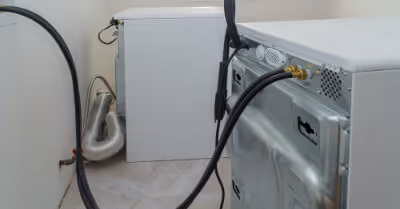Table of Contents
FHA Loan Down Payment Amounts
Homebuyers often find that it is difficult to come up with a substantial amount to put a down payment down on a house. However, FHA loans offer lower down payment amounts than some other types of loans. In fact, an FHA loan may even allow you to put down as little as 3.5 percent of the sale price.
However, to get a 3.5% down payment approved, you will need a credit score of at least 580. If you do not have a good credit score of at least 580 then you may need a 5% or even a 10% down payment.
A substantial down payment will not only help you get approved, but it can also help you get favorable interest rates. While conventional loans will sometimes approve people with down payments as low as 3%, to be approved you would have to have a significantly higher credit score.
Down Payment Tricks
There are some tricks that you can follow to save enough to put a down payment down on a house and most of them are virtually painless considering you will need to save a significant amount of money.
Start Saving Early
While this may seem obvious, it is important to think about because it gives you much more time. As soon as you start considering purchasing a home, you should begin saving. Actually, you should start saving money for a down payment before you ever want to purchase a house. But realistically, that is not likely to be the case.
The earlier you begin to save for the down payment, the better shape you will be in when you start shopping for the house that you decide to purchase. Having the money available to you can help you approach the seller with serious intentions. If you are unable to make a down payment when you are talking to them about buying the home, they are likely to perceive you as “window shoppers” instead of serious buyers.
Down Payment Assistance Programs
Many people that cannot save enough for a down payment are eligible for down payment assistance. A lot of banks have programs to help you purchase your home. You can check the banks in your area to ask if they have these types of programs available and how you can qualify for assistance. Some programs are designed to encourage people in certain areas or communities to purchase a home instead of renting.
First Time Buyer Benefits
There are plenty of incentives for first time homebuyers and you may qualify for them if you have never purchased a home before. In fact, if you have not owned a home in 3 years or only owned a house with a spouse, then you are considered a new homebuyer. You may even qualify if your only home purchase is a mobile home or a home that is not on a permanent foundation.
The Department of Housing and Urban Development (HUD) supports programs for first time homebuyers and some states have additional programs. First time buyers can take up to $10 thousand from an IRA (either traditional or Roth) without having to pay the 10 percent early withdrawal penalty. Additionally, there are programs to help Native American first time homebuyers. Never assume that you cannot afford a down payment just because your relatives never owned a home.
Budget Wisely
The first step to saving a good chunk of your money is proper budgeting. If you do not identify your spending habits, it is nearly impossible to save money in those areas to save for a home down payment. You can sit down with bank statements and debt payments and see where most of your money is going.
Look at how much you spend on necessities including rent, utilities, debt payments, retirement savings, and food. Then, look at the non-essentials like entertainment and restaurants. You should not have to divert 100 percent of your “fun” money towards your down payment, you may be able to comfortably decrease spending in those areas.
Some people find that keeping a spending journal or creating a spreadsheet is an easy way to keep track of their spending from one month to the next. There are also apps available that can help you with the budgeting and can help you avoid excessive spending.
After you know where you need to cut down spending, define an amount that you can realistically spend on those areas each month. Once you get up to that amount, do not spend any more. Then, the remaining money can go towards your down payment.
Downsize
While this may not be the most attractive way to save more money to use as a down payment, it can be an easy way to divert a substantial amount of money to your home savings. This could mean moving to a smaller apartment, but it could also mean selling a more expensive vehicle and choosing an affordable one instead.
Get a Side Hustle
Getting a second job or making money through a side hustle can provide you with enough income to save for a down payment. Since the Great Recession in 2008, banks and lenders always require income verification and will not allow high debt-to-income ratios (typically no more than 43%).
The debt-to-income ratio is used to show how much of your monthly gross income has to be used to pay off your debts. The ratio works by dividing your monthly debt payments by your monthly gross income and then multiplying by 100 to get a percentage. The debt payments are anything that you borrowed and paid money towards including student loans, credit cards, car payments, or a mortgage.
To meet the strict income requirements many homebuyers get a part-time job or start a side hustle This can supplement income and be used for a down payment as well. You may even find that you want to keep your side hustle going after you get approved for the home.
Pay Debt First
The debt-to-income ratio is important for your FHA loan approval. Not only that, but the money you are currently spending on your debts could be saved for a down payment on the home if you pay the debts first. Decreasing your debt-to-income ratio can also help you get favorable rates on the mortgage. Taking the time to pay off the debts can be highly beneficial for you in the long run.
Sell Your Stuff
People who are thinking about purchasing a home often have a lot of extra stuff that they do not really need. These things may be items that you never use anymore, but could be worth a good amount of money to someone else. Furniture, car or auto parts, books, and more can be sold for money and if you do not need those items you may as well do it and put the money towards your home savings.
Skip a Vacation
Vacations can be great and help you destress and relax. However, they can also be very expensive and cost you thousands of dollars that you could use for the down payment on a house. You can save a lot of money and still take time off for relaxation and rest. You can explore new places in your area and save a lot of money. Or, you could just stay home and do the things you wish you had time to do during the busy workweek.
Ask Family for a Gift
Asking friends or family members for money is not always fun, but some of your relatives may be happy to help you out. You can also let them know that they can get a tax write-off for money that they give to you.
The Internal Revenue Service (IRS) allows people to provide others with gifts worth thousands of dollars to write-off the money for the donor and the recipient. The tax exemption depends on the amount that they give you. For 2021, $15 thousand can be gifted without paying any taxes on the amount.
Withdraw from an IRA
If you have a traditional or Roth IRA that you are using for your retirement savings, then you can use that money for a down payment on your home. However, there are some drawbacks to this trick. If you are under the age of 59.5 then you will likely have a 10 percent penalty fee on the withdrawal. You also have to pay income taxes on funds from a traditional IRA or gains from a Roth IRA. The expedition to this is for withdrawals from a Roth IRA for first time homebuyers.
Borrow from a 401(k)
Your employer may allow you to take out a loan on your 401(k). This is not the best option, but it may be a good option in some situations. You will have to pay the loan on the 401(k) back within 5 years with the interest included. Then, if you ever leave the company, you will have to pay the money back immediately or pay an additional penalty fee amount.
You can also choose to tap directly into your 401(k) savings, but you will owe a 10 percent early withdrawal penalty if you do as well as income taxes on any amount that you withdraw. This could negatively impact your retirement savings so it is important to look at other options first.
Ask for a Raise
If you spend most of the money from your income, it may be time that you received a raise. Sure, it can sometimes be nerve wracking, but if you are good at your job you may deserve it and your boss may not have realized how long it has been since you last got a raise or promotion.
When you ask, show them the recent work that you have completed and gather data that shows how important you are to the company's success. You should also remain confident and regardless of the outcome act professionally.
Alternatively, you could see what other types of jobs are available that require your skills. Landing a job that pays more can help you save a lot of extra money for your down payment. Check out job postings and compare salaries. If you find that your salary is below the industry average it can give you leverage to ask for a raise and if you do not get it you can check out what other jobs are available.
Crowdfunding
There are a few major crowdfunding sites available that you may want to check out as well. HomeFundIt is the most popular one, but you can also check out Honeyfund and Feather the Nest. This allows you to tap into your friends, family, co-workers, and other acquaintances for extra money. However, you should remember that you will have to pay taxes on any of the crowdfunded income.
Recent Articles
















